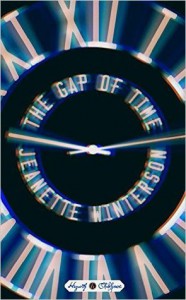SPOILER ALERT!
A Natural History of Dragons: A Memoir by Lady Trent
 Hmm...what to say about this book? I liked the memoir style. I liked the narrative within a narrative structure. It was entertaining enough. Yet I feel let down. First - and this is a well documented gripe - there aren't nearly enough dragons and it wasn't really a natural history either. Most of what we learned about the dragons in this book is that while our protagonist loves dragons, neither she nor the broader scientific community know much about them at all. We saw I think 2 live dragons and some bones, along with some problematic attitudes toward big game hunting (which is ok if it's for "science" I guess). None of these encounters were described with the depth or detail that you'd expect from a protagonist who devoted her life to the study of dragons. This is fantasy, she could have made up literally anything at all about dragons and it would have been ok. This is another one of those instances where I feel like I got tricked into reading a romance. I don't give a shit about your marriage prospects, gimme the damn dragons!
Hmm...what to say about this book? I liked the memoir style. I liked the narrative within a narrative structure. It was entertaining enough. Yet I feel let down. First - and this is a well documented gripe - there aren't nearly enough dragons and it wasn't really a natural history either. Most of what we learned about the dragons in this book is that while our protagonist loves dragons, neither she nor the broader scientific community know much about them at all. We saw I think 2 live dragons and some bones, along with some problematic attitudes toward big game hunting (which is ok if it's for "science" I guess). None of these encounters were described with the depth or detail that you'd expect from a protagonist who devoted her life to the study of dragons. This is fantasy, she could have made up literally anything at all about dragons and it would have been ok. This is another one of those instances where I feel like I got tricked into reading a romance. I don't give a shit about your marriage prospects, gimme the damn dragons!And while I get that the Lady Trent is a Victorian lady and that Scirland and Vystrana are fictional places, it made me a little uncomfortable that the racism and classism of Victorian England went unchallanged. Her descriptions of the Scirland and Vystrana people were far from flattering (being generous there) and could have come straight from the pages of a real collection of Victorian travel writing. Whatever goodwill Lady Trent built up in the way of pursuing her passion despite her gender, she lost through her treatment and descriptions of her Vystrani maid. But we'll say that's not problematic and chalk it up to an effort to romanticize that era (which is problematic in and of itself, but MOVING ON...). The other major weakness is that her character never develops and we're supposed to take that as a sign of her just being strong-willed. She repeats the same mistakes over and over, bringing harm to others, but it's seemingly ok because, again, of "science". Not only is that aggravating in terms of character development, but it makes for a pretty boring plot as well. "Hey Isabella, don't do this ok? It's seriously dangerous and you might get us all killed." Oh boy. I wonder what she's going to do next...
I couldn't decide how I felt about Jacob's death. At first I was annoyed - for at least the 10th time on their expedition, Lady Trent does something she shouldn't have done and puts them all in a compromising position, only this time she gets her husband killed. And then she shows literally no remorse. There was a throwaway paragraph in there about how her grief was real and her depression was real and she doesn't have to answer to anyone (I get that, I can support that), but it was pretty flat. On top of that, his death was pointless. How did it better the plot? What purpose did it serve? So that was irksome and kind of lazy. What was the point of his character then? Just a means to an end? Just a tool to make her more sympathetic? (If so it failed in that regard) But then I thought: You know, women are killed off for no reason all the time in pop culture, it's kind of refreshing to see it go the other way. But then I thought: No, it's just lazy, she's not trying to undermine that sexist character type. So here I am, annoyed that Jacob was a one dimensional character and just as annoyed that he died a pointless death.
I want some god damn dragons.
The Feminist Utopia Project: Fifty-Seven Visions of a Wildly Better Future
 Great collection of writings that imagine the world as a feminist utopia in the distant and not-so-distant future. This collection approaches the idea of a feminist utopia from a wide range of perspectives, taking up and challenging today's status quo from a number of angles. It's a mix of fiction, letters of a sort, essays of a sort, and interviews, with some illustration in the mix for good measure. I definitely recommend it for a burgeoning feminist or anyone who needs to expand their view of what feminism really entails.
Great collection of writings that imagine the world as a feminist utopia in the distant and not-so-distant future. This collection approaches the idea of a feminist utopia from a wide range of perspectives, taking up and challenging today's status quo from a number of angles. It's a mix of fiction, letters of a sort, essays of a sort, and interviews, with some illustration in the mix for good measure. I definitely recommend it for a burgeoning feminist or anyone who needs to expand their view of what feminism really entails.
The Tsar of Love and Techno: Stories
 My boyfriend has a knack for knowing when I reach the last 20 pages of a book and chooses that moment to badger me with questions or otherwise distract me. (Even if he's not home at the time, it's uncanny, I'll start getting texts as soon as I near the finish line.) But as I dove into the final story in The Tsar of Love and Techno, he knew to leave me alone. I was barely keeping it together over on my end of the couch and he would have had to deal with unintelligible sobs if he so much as asked, "What do you want for dinner?"
My boyfriend has a knack for knowing when I reach the last 20 pages of a book and chooses that moment to badger me with questions or otherwise distract me. (Even if he's not home at the time, it's uncanny, I'll start getting texts as soon as I near the finish line.) But as I dove into the final story in The Tsar of Love and Techno, he knew to leave me alone. I was barely keeping it together over on my end of the couch and he would have had to deal with unintelligible sobs if he so much as asked, "What do you want for dinner?" So I guess you could say I had a strong emotional response to this book. Marra really knows how to wield that deadly combination of humor and sadness. He knows just how to make you lower your guard, and then before you know it he's punched you in the gut, you're uncontrollably weepy, and snot is running down your face. Not just any book can make me feel so vulnerable.
The Tsar of Love and Techno is a series of time-hopping short stories that each revolve, in some way, around the actions of a Soviet censor. Using multiple narratives, Marra shows us the many ways that art can hurt, heal, inspire, and betray us. He shows that there is beauty in the pain and absurdity of life, and that can sometimes be our only comfort. Each character has depth and complexity, each is meticulously and expertly rendered. Each story is good enough on its own that it could serve as a stand alone, but together they're something else.
Bright Lines: A Novel
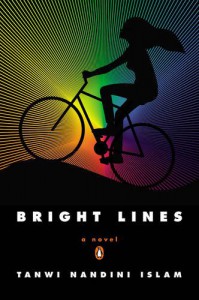 An engrossing story that's equal parts family drama and coming of age, with a dose of humor thrown in for good measure. There is a fair amount going on beneath the surface of this novel, it's one that you could dissect and discuss for hours. It's beautifully voiced and touching, all while cast in a sort of melancholy tone as El struggles to find a place/identity/home. For some reason it took me a while to get around to reading this (I think it was the cover art, I'm ashamed to admit) but when I picked it up I had a hard time putting it down again.
An engrossing story that's equal parts family drama and coming of age, with a dose of humor thrown in for good measure. There is a fair amount going on beneath the surface of this novel, it's one that you could dissect and discuss for hours. It's beautifully voiced and touching, all while cast in a sort of melancholy tone as El struggles to find a place/identity/home. For some reason it took me a while to get around to reading this (I think it was the cover art, I'm ashamed to admit) but when I picked it up I had a hard time putting it down again.
Cooler Smarter: Practical Steps for Low-Carbon Living
 Practical and clear, this is a good primer for anyone who wants to start living in a more environmentally friendly way. Many of the tips are unsurprising if you've already been working on reducing your carbon footprint, but I found a few useful tips to use in areas I hadn't even thought about before. I ordered this for our library as part of a sustainability push and I'm quite satisfied with it. It is accessible enough for our students and makes a good case for how individual decisions can in fact make a difference.
Practical and clear, this is a good primer for anyone who wants to start living in a more environmentally friendly way. Many of the tips are unsurprising if you've already been working on reducing your carbon footprint, but I found a few useful tips to use in areas I hadn't even thought about before. I ordered this for our library as part of a sustainability push and I'm quite satisfied with it. It is accessible enough for our students and makes a good case for how individual decisions can in fact make a difference.
A Year of Programs for Millennials and More
 This book is full of great programming ideas, broken down by month with tips for how to prepare, budget, and market each program. I work at a college library and we don't do a whole lot of programming, but we're brainstorming ways to bring more groups through our doors. Some of these events might do the trick! I was a little surprised there weren't any coding nights or more tech-geared programs, but then again most of these were aimed more towards just having fun and meeting people. I was a little unsure of what to expect with this, hoping it wouldn't be a dud, and it exceeded expectations. This will be a helpful book in the coming months.
This book is full of great programming ideas, broken down by month with tips for how to prepare, budget, and market each program. I work at a college library and we don't do a whole lot of programming, but we're brainstorming ways to bring more groups through our doors. Some of these events might do the trick! I was a little surprised there weren't any coding nights or more tech-geared programs, but then again most of these were aimed more towards just having fun and meeting people. I was a little unsure of what to expect with this, hoping it wouldn't be a dud, and it exceeded expectations. This will be a helpful book in the coming months.
Light on Yoga: The Bible of Modern Yoga...
 I read this for teacher training and will be coming back to it regularly in the future. The introduction provides a quick yet comprehensive overview to yogic philosophy while the rest is a thorough breakdown of the main postures, along with modifications and uses for props. The spiritual side of yoga is new for me. Or at least formal instruction on the spiritual side is new to me. We're using this text as kind of a guide book for our weekly discussions and, not surprisingly, it's making my entire practice much richer.
I read this for teacher training and will be coming back to it regularly in the future. The introduction provides a quick yet comprehensive overview to yogic philosophy while the rest is a thorough breakdown of the main postures, along with modifications and uses for props. The spiritual side of yoga is new for me. Or at least formal instruction on the spiritual side is new to me. We're using this text as kind of a guide book for our weekly discussions and, not surprisingly, it's making my entire practice much richer.
Let Me Tell You: New Stories, Essays, and Other Writings
 I'll be real, I gave up on this. I can only do so many 3 page stories that follow the same format in a row. I like the uncanny and will likely come back to this in the future when I need a quick dose of it. For now, returning to this book felt like a chore and reading in that mindset isn't fair to any author, so I'm putting it aside. Sorry Shirley, it pains me to do this because I think you're amazing, but there are too many books on my nightstand to stay stuck on this for much longer.
I'll be real, I gave up on this. I can only do so many 3 page stories that follow the same format in a row. I like the uncanny and will likely come back to this in the future when I need a quick dose of it. For now, returning to this book felt like a chore and reading in that mindset isn't fair to any author, so I'm putting it aside. Sorry Shirley, it pains me to do this because I think you're amazing, but there are too many books on my nightstand to stay stuck on this for much longer.
Apps for Librarians: Using the Best Mobile Technology to Educate, Create, and Engage
 If apps are totally new to you and you feel overwhelmed with where to begin, this will be a very useful tool for you. It's clear and concise and breaks apps into various categories that are practical and easy to understand. While I didn't find much that I hadn't already come across through my own tinkering, I get how it would be useful to someone just getting started. The majority of this book felt to an introduction to apps for anyone - not just librarians - so in that sense I was a little disappointed. I was hoping for a little more on how to creatively use apps in your library or how to creatively promote apps for your patrons. Much of this just seemed like general use.
If apps are totally new to you and you feel overwhelmed with where to begin, this will be a very useful tool for you. It's clear and concise and breaks apps into various categories that are practical and easy to understand. While I didn't find much that I hadn't already come across through my own tinkering, I get how it would be useful to someone just getting started. The majority of this book felt to an introduction to apps for anyone - not just librarians - so in that sense I was a little disappointed. I was hoping for a little more on how to creatively use apps in your library or how to creatively promote apps for your patrons. Much of this just seemed like general use.That said, I think this would be better suited as a website or blog, something that can be regularly updated. I had a feeling that would be the case, it usually is with these types of books. Of the handful of apps that I went to look at, most were already outdated or not at the listed URL. While it is nice to have a primer like this with apps covering a range of topics, as I read over each section I couldn't help but feel you'd find more useful results just by googling "best apps for [fill in the blank]", complete with user reviews. But again - even that can be overwhelming to someone just getting started, or they might not think to google an app for some of the categories listed in this book.
I did find the final chapters on performing your own analysis of apps helpful, it's something I'll keep in mind when recommending apps to patrons. It also reminded me to follow up on an email we got from LibraryThing about creating our personalized app, so thanks for that Nicole Hennig 8)
The Vegetarian
 I'm a fan of open endings, psychological breaks, and bizarro premises, but this didn't hit the right note for me. This is my first dip into Korean literature and I was not ready for it. I think I need some short stories or something to warm up to the general atmosphere before diving into something like this. I just don't see what all the raving is about, maybe I wasn't in the right mindset. Dark, yes, but this didn't feel particularly deep or intriguing. The characters felt pretty flat, especially the main character, and I was so flipping confused at the end. I just......don't get it. I feel so ashamed.
I'm a fan of open endings, psychological breaks, and bizarro premises, but this didn't hit the right note for me. This is my first dip into Korean literature and I was not ready for it. I think I need some short stories or something to warm up to the general atmosphere before diving into something like this. I just don't see what all the raving is about, maybe I wasn't in the right mindset. Dark, yes, but this didn't feel particularly deep or intriguing. The characters felt pretty flat, especially the main character, and I was so flipping confused at the end. I just......don't get it. I feel so ashamed.
Station Eleven
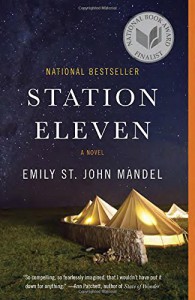 So good. I don't re-read books often (re: ever) but I am almost ready to just start over again with this one. There were some passages in here that just blew me away.
So good. I don't re-read books often (re: ever) but I am almost ready to just start over again with this one. There were some passages in here that just blew me away.
Using Libguides to Enhance Library Services: A Lita Guide
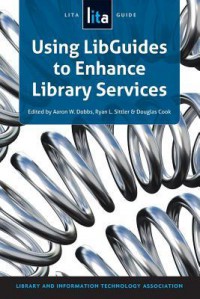 Kind of perplexing - it's geared toward beginners but written in an incredibly dry, academic tone. As others have noted, the first few chapters aren't necessary. Anyone using this book will likely already know what LibGuides is and will have already gone through the arguments over whether or not it's right for their library. It read like someone's dissertation, slightly adapted to serve as a how-to guide. There were plenty of screenshots, but they are all relatively small and grainy. Our library is on version 2.0, and all of the screenshots within were 1.0. There's not a drastic change between the two versions, and everything I read still applies...I suppose that's just a problem of writing a print book on technology. This entire thing could have been half the length with more practical how-tos and less theory and I would have found it twice as useful. Oh well! Glad I borrowed it from another library before purchasing our own copy :)
Kind of perplexing - it's geared toward beginners but written in an incredibly dry, academic tone. As others have noted, the first few chapters aren't necessary. Anyone using this book will likely already know what LibGuides is and will have already gone through the arguments over whether or not it's right for their library. It read like someone's dissertation, slightly adapted to serve as a how-to guide. There were plenty of screenshots, but they are all relatively small and grainy. Our library is on version 2.0, and all of the screenshots within were 1.0. There's not a drastic change between the two versions, and everything I read still applies...I suppose that's just a problem of writing a print book on technology. This entire thing could have been half the length with more practical how-tos and less theory and I would have found it twice as useful. Oh well! Glad I borrowed it from another library before purchasing our own copy :)
The Weeding Handbook: A Shelf-by-Shelf Guide
 As a newbie to the weeding game, this will come in handy. What I could really use is one of these geared specifically toward academic libraries. Even so, it gave me some good ideas on how to get started and how to use the data we have to help form a list of potentially-weedable titles. I think it's safe to say I'm not one of those librarians who is going to have trouble yanking titles from the collection, but we'll see once this project actually gets underway.
As a newbie to the weeding game, this will come in handy. What I could really use is one of these geared specifically toward academic libraries. Even so, it gave me some good ideas on how to get started and how to use the data we have to help form a list of potentially-weedable titles. I think it's safe to say I'm not one of those librarians who is going to have trouble yanking titles from the collection, but we'll see once this project actually gets underway.
Bite Sized Marketing: Realistic Solutions For The Over Worked Librarian
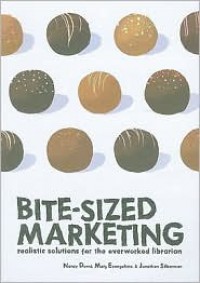 Meh, it was ok. I jotted a few things down but this was nothing revelatory. It mostly touts word of mouth marketing, which is fine, but "make friends with the cool kids" is kind of weak advice. The things I made a note on were the sections where they actually provide tips or suggestions for action - survey questions, story box ideas, podcast equipment recommendations, etc. Otherwise I flipped through it pretty quickly without too much commitment.
Meh, it was ok. I jotted a few things down but this was nothing revelatory. It mostly touts word of mouth marketing, which is fine, but "make friends with the cool kids" is kind of weak advice. The things I made a note on were the sections where they actually provide tips or suggestions for action - survey questions, story box ideas, podcast equipment recommendations, etc. Otherwise I flipped through it pretty quickly without too much commitment.
Food52 Vegan
 "Eating vegan is, at its best, less a rejection of certain foods and more an embrace of foods that are bright and flavorful."
"Eating vegan is, at its best, less a rejection of certain foods and more an embrace of foods that are bright and flavorful." This is a great primer on vegan cooking. It's super accessible with recipes that range from the everyday/I-have-30-minutes-to-make-dinner to the more adventurous and time intensive. I thought the intro summed it up pretty well in saying that Hamshaw isn't just veganizing traditional recipes but showing that foods that are conceptualized as vegan from start to finish can be just as exciting. I love the design and layout and have basically the whole soup and entree sections bookmarked. I also liked the integration of prep tips and tricks throughout, along with the essentials section at the end. My only qualm is the lack of nutritional information, but it's not a deal breaker. I could have gotten down with a few more "out there" or exciting recipes, but this will be a great resource for the staples.
I have mixed feelings about the line I quoted above - I think that's a good approach for many, but for me the decision to eat more vegan food IS a rejection of certain foods. I'm a Midwesterner through and through - I love me some meat and cheese. So the choice to cut those from my diet is a very deliberate rejection of that industry. BUT. It doesn't have to be that way for everyone, I get that. Everyone has their own reasons and what this book does really well is it neutralizes the issue and makes it approachable to everyone, even people freaked out by the very concept of veganism.






